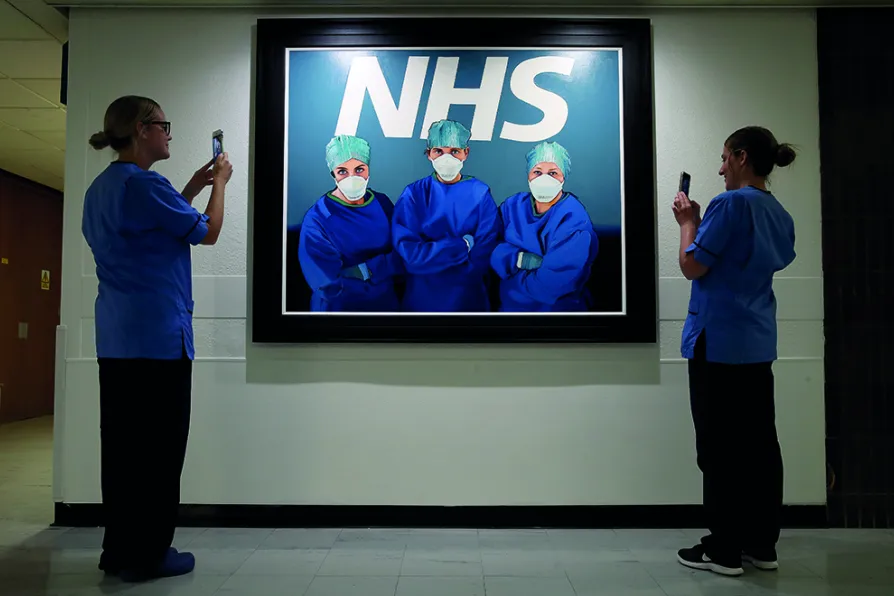The Carpathia isn’t coming to rescue this government still swimming in the mire, writes LINDA PENTZ GUNTER
NHS privatisation — why we must unite to oppose it
Now is the time to unite outsourced workers’ demands to become NHS employees, on NHS pay and conditions, with the fight to stop the privatisation of our health service altogether, writes HELEN O’CONNOR

 NHS workers get official praise and commemorative portraits - but the government is continuing to destroy the foundations of our public health service
NHS workers get official praise and commemorative portraits - but the government is continuing to destroy the foundations of our public health service
THE pillaging of NHS funds and the demoralisation of hospital workers by the private sector is commonplace throughout the NHS.
Increasingly the private sector is becoming more embedded in our NHS as services are separated off and tendered out to the lowest bidder.
The special relationship with the NHS facilities contract manager who is as hostile to the presence of active unions, as the private company is the entrance ticket to the NHS goldmine.
Similar stories

Ben Chacko talks to RMT leader EDDIE DEMPSEY about how the key to fixing broken Britain lies in collective sectoral bargaining, restoring unions’ ability to take solidarity strike action and bringing about the much-vaunted ‘wave of insourcing’

Behind Starmer’s headline-grabbing abolition of NHS England lies a ruthless drive to centralise control so that cuts of £6.6 billion can be made — even if it means reducing cancer services and clinical staff, writes JOHN LISTER












